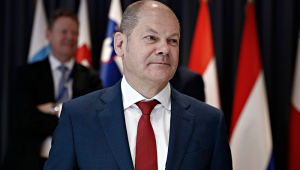Until last Friday, the South African Social Security Agency (SASSA) had no way to deliver the critical welfare payments, due on 1 April and worth $10.34bn per year, after a previous 2014 ruling voided its public-private partnership contract with company Cash Paymaster Services (CPS).
As well as finding a solution, the court’s ruling was sharply critical of the government. The fiasco has brought yet more opprobrium down on embattled president Jacob Zuma and his government.
The court directed its comments at social development minister Bathabile Dlamini and the South African Social Security Agency, describing their conduct as “extraordinary”.
In the introduction, it read: “This court and country as a whole are now confronted with a situation where the executive arm of government admits that it is not able to fulfil its constitutional and statutory obligations...
“And, in the deepest and most shaming of ironies, seeks to rely on a private corporate entity, with no discernible commitment to transformative empowerment in its own management structures to get it out of this predicament.”
To avoid what the court described as a “catastrophe” that would undermine the government and constitution, it extended the terms of a contract allowing SASSA to continue working with CPS.
Moving from a system where provinces were responsible for social benefits to a national system in 2012, SASSA signed a five-year PPP with CPS to deliver $862.5m in payments on behalf of SASSA every month.
The grants included benefits for the elderly and disabled, war veterans and child support. While there were 10.5 million beneficiaries, the true number of people reliant on the payments was much higher as this includes millions of children.
In 2013, the court had declared the contract invalid because of irregularities in the tender process. However it was later decided this should continue to term, ending on 31 March 2017, because of legal disputes and the agency’s failure to issue a new contract.
This stay was based on assurances that SASSA would either secure another contract, reporting to the court on its progress in this matter, or take over the welfare payments when the contract ended.
SASSA failed to report to the court or secure a new contract in the years since 2014, and has been accused of ignoring other bidders. It emerged in February that SASSA was unable to pay for the benefits itself – a fact SASSA had known since April 2016.
CPS was accused of sharing beneficiaries’ data with third parties outside of the terms of the contract, and deducting money from beneficiaries’ accounts.
The whole scandal has also fuelled yet more allegations of corruption within the Zuma administration.
To ensure the continued payment of the benefits, the court was forced to extend SASSA’s contract with the agency for a further 12 months despite this. It also reinstated the order that the agency must report to the court on how it plans to deliver the payments after that period.
Given the extend of Dlamini’s failures, it said she would have until the 31 March to provide evidence of why she should not be joined to the case in a personal capacity and pay the costs out of her own pocket.
Dlamini apologised to beneficiaries of the payments for the “anxiety and fear” caused. Her party, the ruling African National Congress, has called for “harsh consequences” to stop such events happening again.
“Government must thoroughly investigate actions of those involved and act decisively against those responsible for this embarrassing and undesirable situation,” the ANC statement said.
“It is unacceptable that such a critical aspect of our social security net, affecting the security and livelihood of the most vulnerable in our country, was not dealt with much better in a speedy manner to avoid the unnecessary anxiety and panic caused.”
The Black Sash Trust, one of a number of rights groups that brought the case against SASSA, welcomed the ruling, and agreed the country should “not be put into this invidious position ever again”.














